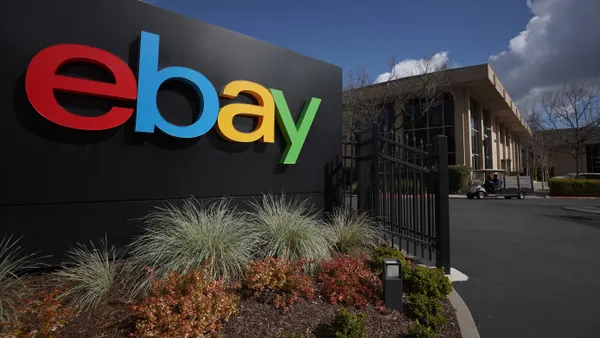Dive Brief:
-
Google has moved Google Assistant’s Shopping List feature out of its Google Keep note-taking and storage app and into the Google Express shopping and delivery app that now works through the Google Home interactive speaker.
-
In conjunction with the move, Google Express is waiving delivery fees for the rest of this month for orders placed through Google Home.
-
The addition of Shopping List to Google Express comes a couple of months after Google enabled consumers to start using Google Assistant voice capabilities through Google Home to shop more than 50 Google Express retail partners.
Dive Insight:
File this under "Google's efforts to become Amazon" or something like it. The web search giant is trying to control the shopping experience as much as it possibly can, and to accomplish this is trying to do all kinds of things to make itself a better partner for retailers. Just this week, it added a Similar Items capability to its image search functionality which helps connect consumers with products that catch their eyes in photos. Enabling consumers to use Google Assistant to shop many retailers via Google Home was another big step for its shopping aims.
Interestingly, Google's ambition and what it's willing to do to become a better shopping service is starting to rankle some people. Apparently, Shopping List was a highly valued feature in Google Keep, and of course a natural one to have in a note-taking app. With this move, you can no longer ask Google Assistant to make a shopping list in Keep, only in Google Express (though you probably can ask to make a note that is a shopping list without actually calling it a shopping list.)
Google is clearly hoping people continue to use Shopping List in Google Express and then use Google Express to shop through Google Home (Anyone know how many "Google" references we're up to?) But, not everyone is happy about that. A post at Ars Technica railed against the move, arguing that many Shopping List features and functions were lost in the process, and criticizing Google for ruining a valuable capability by displacing it in an effort to promote its own shopping service.
This might be the sort of challenge that Amazon never has had to face and never will, as an e-commerce site that has always been an e-commerce site. Google often tries be everything people are using the internet for, but it doesn't always go so smoothly — its Google+ social media platform being a pretty prominent example that notion. Can Google become a little more like Amazon when it already has had a lot of trouble trying to become more like Facebook? It certainly can try, but it has to be careful about alienating users at the same time. If they are unhappy with a list-making feature moving, there might be a lot more they will get upset about as Google makes this transition.










